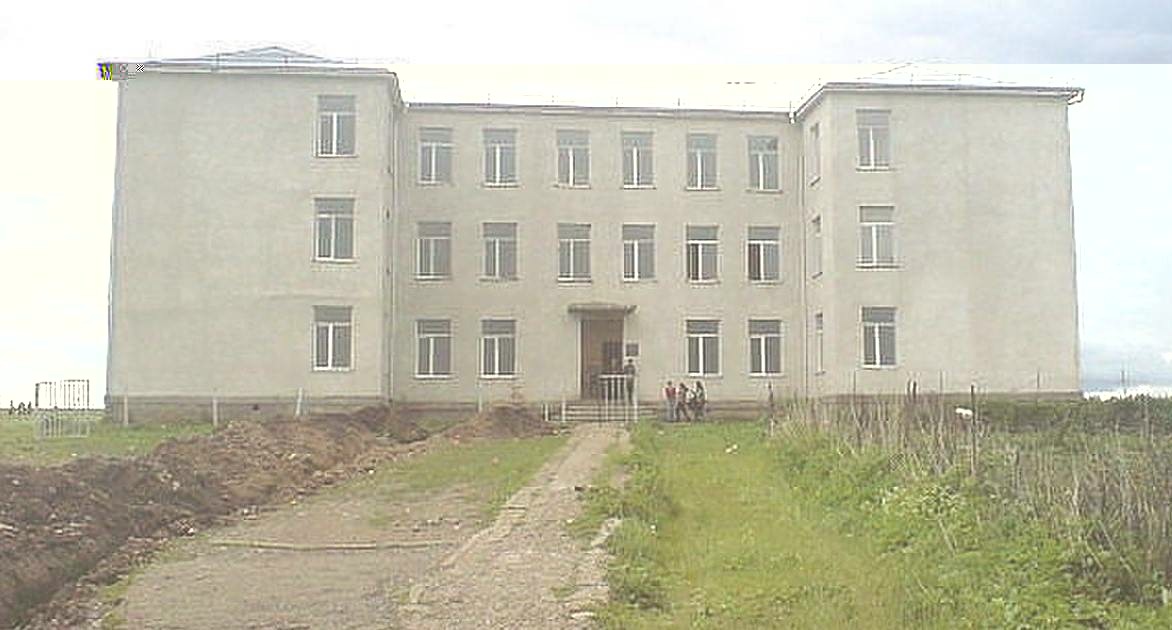საერთო ცხელი ხაზი +995 577 07 05 63

 The Social Justice Center has addressed the Ministry of Education, Science, Culture and Sport with an extensive, argumentative letter, calling for the implementation of positive and systematic measures necessary to promote a religiously neutral, inclusive, and equal environment in public schools.
The Social Justice Center has addressed the Ministry of Education, Science, Culture and Sport with an extensive, argumentative letter, calling for the implementation of positive and systematic measures necessary to promote a religiously neutral, inclusive, and equal environment in public schools.
On February 2, 2024, in the village of Artsivani, Tsalka municipality, Christian clergy consecrated classrooms and placed crosses on the walls during class hours.[1] The school director was involved in this process, and neither the teachers, students, nor their parents were informed beforehand. It is noteworthy that the Tsalka municipality is an ethnically diverse region. The village of Artsivani is home to eco-migrants from Adjara, many of whom are Muslim. Some teachers, students, and parents protested the incident and took legal action.
The Internal Audit Department promptly began investigating the matter and, in a decision made a few days ago, found that the school director had violated the requirements of the General Education Law. The Ministry demanded that the school respond to the incident but did not specify what type of measures should be taken to prevent similar occurrences in the future.
Unfortunately, proselytism and religious indoctrination remain ongoing practices in public schools. This issue is also highlighted in the reports of the Public Defender. The Public Defender describes specific cases of religious indoctrination and proselytism. For instance, in 2021, a lesson cycle on "Homeland Studies" was introduced in two public schools in Kvemo Kartli, initiated by the Georgian Patriarchate and the Society of Chokhosani, which was characterized by a strongly Orthodox confessional content and a denial of Georgia's ethnic and religious diversity.[2] The Council of Religions under the Public Defender of Georgia also identifies proselytism in educational institutions as a problem. The Council notes that the principle of religious neutrality is often not maintained in public schools, with religious rituals being performed during lessons, including prayers before starting classes, visits by clergy during academic hours to bless and preach to students, and the presence of prayer corners and the display of religious symbols for non-academic purposes on school premises. This trend is also indicated by the results of a study conducted by the Social Justice Center a few years ago.[4]
It should be noted that in Georgia, various acts regulate religious freedom and religious neutrality in the educational process in public schools, explicitly prohibiting religious indoctrination, proselytism, and discrimination in public schools.
The Law on General Education explicitly excludes imposing obligations on students, parents, and teachers that fundamentally contradict their beliefs and conscience.[5] Article 13 of the Law directly prohibits the use of the educational process for religious indoctrination, proselytism, or forced assimilation.[6] Furthermore, the Law on General Education explicitly prohibits the placement of religious symbols for non-academic purposes on public school premises.[7] The Law also clearly bans the performance of religious rituals during class hours, even for academic purposes.[8] These regulations demonstrate the state's intention for public schools to be considered secular spaces free from religious content, where religion is approached not as a belief but as a system of knowledge, thereby aligning educational policy with secular framework requirements.[9]
The requirement to prohibit violations of religious neutrality in public schools is also included in the professional code of ethics for teachers and directors, approved by the Minister of Education and Science.
Beyond local legislative regulation, the importance of protecting the principle of religious neutrality in public schools is shared by authoritative international organizations such as the United Nations,[10] the European Commission against Racism and Intolerance (ECRI),[11] and the OSCE Office for Democratic Institutions and Human Rights (ODIHR).[12]
Given that cases of religious indoctrination and proselytism continue to be frequent in public schools despite explicit legislative prohibitions, it is essential for the state to promote an inclusive and equal learning and social environment in public schools through proactive approaches and systematic interventions.
To this end, it is particularly important for the Ministry of Education, Science, Culture and Sport to:
[1] “They performed a consecration ritual during class” – what happened in Tsalka school also attended by Muslim students. Available in Georgian at: https://batumelebi.netgazeti.ge/news/514108/#gsc.tab=0
[2] The 2021 Report of the Public Defender of Georgia on the Situation of Protection of Human Rights and Freedoms in Georgia. P. 202.Available at: https://www.ombudsman.ge/res/docs/2022070612391254904.pdf
[3] Recommendations issued by the Council of Religions at the Public Defender’s Office of Georgia. P.13. Available in Georgian at: https://shorturl.at/nKQW0
[4] Social Justice Center, Religion in Public Schools: an Analysis of Educational Policy from the Perspective of Religious Freedom. P. 8. Available at: https://socialjustice.org.ge/uploads/products/pdf/Religion_In_Public_Schools.pdf
[5] Law of Georgia on General Education, Article 18(1). Available at: https://matsne.gov.ge/en/document/download/29248/56/en/pdf
[6] Ibid, Article 13(2)
[7] Ibid, Article 18(3)
[8] Ibid, Article 18(4)
[9] Social Justice Center, Religion in Public Schools: an Analysis of Educational Policy from the Perspective of Religious Freedom. P. 15. Available at: https://socialjustice.org.ge/uploads/products/pdf/Religion_In_Public_Schools.pdf
[10] United Nations, Convention against Discrimination in Education, Article 5(1)(a). Available at: https://shorturl.at/iBCRS
[11] ECRI, General Policy, Recommendation No.10 on Combating Racism and Racial Discrimination in and through School Education. Article 2(b). Available at: https://rm.coe.int/ecri-general-policy-recommendation-no-10-on-combating-racism-and-racia/16808b5ad5
[12] ODIHR Advisory Council of Experts on Freedom of Religion or Belief, “Toledo Guiding Principles on Teaching about Religions and Beliefs in Public Schools”, P. 38. Available at: https://shorturl.at/aklrD
The website accessibility instruction